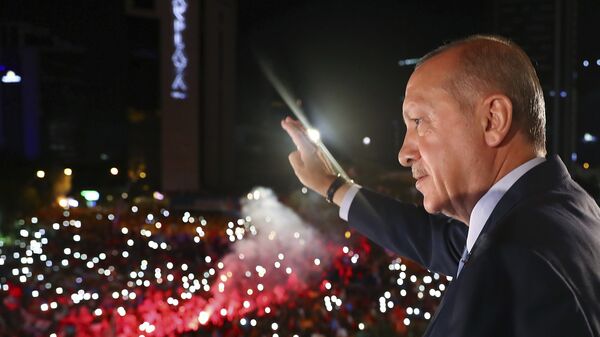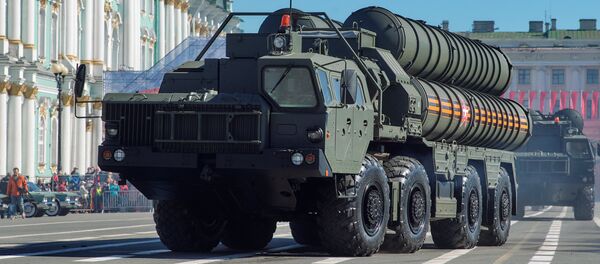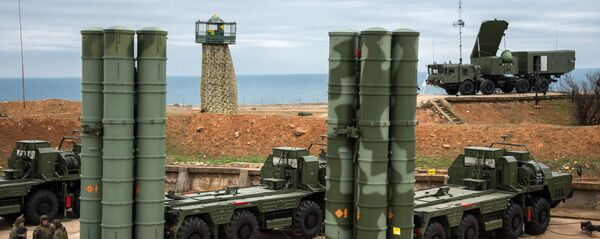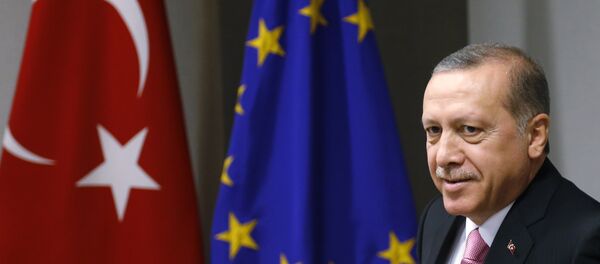The absence of EU and US high-ranking officials at Recep Tayyip Erdogan's inauguration ceremony is connected with tensions simmering between Ankara and Western countries, retired Lieutenant-General Ismail Hakki Pekin, a former head of the Turkish General Staff's Intelligence Department, told Sputnik Turkey.
"Erdogan has never declared a breach of relations with the West, so I believe that in the future, cooperation between Turkey and the West will continue," Pekin opined. "As you know, after visits to Azerbaijan and the [self-proclaimed] Turkish Republic of Northern Cyprus, Erdogan is currently taking part in the NATO summit. I suppose that Turkey will not make sharp turns in its foreign strategy, and will adhere to a well-balanced policy."
"I believe that the West, which was represented by a very small number of people at the inauguration ceremony, has adopted a wait and see approach towards Turkey," the retired general suggested. "The West understands that it needs Turkey. Although there are serious problems and contradictions in their relations, it is obvious that the West needs to maintain contacts with Turkey in many spheres, especially when it comes to ensuring order in the Middle East."
For his part, Can Baydarol, vice president of the EU and Globalization Studies Association, opined that Western leaders ignored Erdogan's inauguration in order not to convey the impression that they support his policies.
According to Baydarol, Erdogan owes his victory to the image of a national leader "challenging the West."
"Now Europe is trying to understand whether Erdogan's position will change during his new tenure," the Turkish analyst suggested. "The participation of Hungary and Bulgaria, as well as ex-politicians, does not indicate a significant support [to Erdogan] from the West."
"The effectiveness of the Ministry was, of course, low; in fact, it hasn't made any progress for 6-7 years," Baydarol noted. "Nevertheless, its presence was a definite symbol of Turkey's desire to join the EU. Therefore, the decision of the Turkish authorities to liquidate it as an independent institution could be regarded as a kind of Ankara's message to Brussels that membership in the EU is no longer one of the country's priorities."
The analyst presumed that one shouldn't expect any serious shifts in the Turkey-EU relationship in the near future. However, it all depends on how Turkey's new system of government will work, he added.
Turkey applied to join the European Economic Community, the European Union's predecessor, on April 14, 1987. It inked a Customs Union treaty with the EU in 1995 and was announced as an official candidate for EU membership in December 1999. In 2005, Turkey and the European bloc kicked off negotiations for full membership.
The refugee deal signed between Ankara and the EU in 2016 appeared to accelerate the process tremendously. However, the attempted coup d'etat in July 2016 and subsequent arrests of alleged culprits and opposition leaders prompted the European Parliament to vote for the suspension of the accession talks. Eventually, the process completely stalled in 2017.
The views and opinions expressed by the contributors do not necessarily reflect those of Sputnik.





